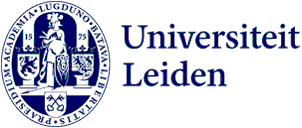Fraud and plagiarism
Leiden University regards fraud and plagiarism as serious offences. Fraud is defined as any action or omission by a student that makes it completely or partly impossible to form a correct assessment of the knowledge, understanding and skills of the student or of another student. Plagiarism is defined as copying someone else’s work without providing a proper reference. Plagiarism is a form of fraud.
A more detailed explanation is given below, based on examples, of what is understood by fraud and plagiarism. The study programme’s Course and Examination Regulations (OER) specify the formal procedure to be followed in the event of suspected fraud or plagiarism, and the sanctions that may be imposed.
What is fraud?
Examples of fraud include:
- During the examination, using a ‘cheat sheet’ or exchanging information with another person
- During the examination, being in possession of (i.e. having available or wearing) study aids (e.g. pre-programmed calculator, mobile telephone, smart watch, smart glasses, books, syllabi, notes etc.) whose use is not explicitly permitted
- During an online (or other) examination or practical assignment, completely or partly copying the answers of another person or answers obtained via software, such as unauthorised AI software
- Commissioning another person to carry out a study assignment (completely or partly) and presenting it as one’s own work
- Before the date or time when the examination will take place, gaining possession of the questions, assignments or answers of that examination
- Making use of fictitious research data, graphs, literature and literature references
- During an online (or other) examination or practical assignment, impersonating another person
What is plagiarism?
Plagiarism is defined as copying another person’s data or sections of text in a thesis or other essay without citation of the source. Plagiarism is a form of fraud. Examples of plagiarism include:
- Cutting and pasting text from digital sources, such as encyclopaedias and online journals, without inverted commas and a reference
- Copying texts or programming codes that were generated by software, such as AI software, and presenting this – intentionally or otherwise – as one’s own work, without citing the source
- Cutting and pasting texts from the internet, without inverted commas and a reference
- Copying printed material, such as books, journals and encyclopaedias, without inverted commas and a reference
- Incorporating a translation of the above-mentioned texts, without inverted commas and a reference
- Paraphrasing the above-mentioned texts, without a (proper) reference: paraphrasing must be indicated as such (by explicitly linking the text with the original author in the text or a footnote), to avoid creating the impression that these are one’s own ideas
- Copying another person’s visual, sound or test material, without reference and thus allowing it to pass for one’s own work
- Re-submitting one’s own previously produced work, without citing the source, and allowing it to pass for original work created in the context of the course, unless this is explicitly permitted in the course or by the teacher
- Copying another student’s work and allowing it to pass for one’s own work
- If plagiarism is committed by one of the authors in a joint essay, the other authors are also complicit in the plagiarism if they could or should have known that the other person was committing plagiarism
- Submitting essays that have been acquired from a commercial organisation, such as an internet site offering extracts or papers, or that have been written by another person for payment
ChatGPT
The use of language models, such as ChatGPT, offers all kinds of new possibilities for producing texts. If a student presents an AI-generated text as their own work, this is regarded as plagiarism and hence as fraud. More information about AI in education and FAQs and answers about ChatGPT can be found at: AI in education – Leiden University.
